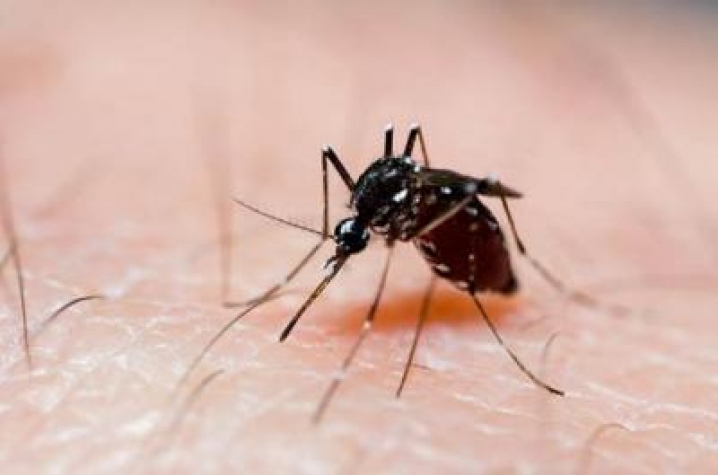UK Entomologist Shares Tips on How to Reduce Mosquito Numbers

LEXINGTON, Ky. (Sept. 4, 2012) — Cases of West Nile virus continue to climb across the state. As of Aug. 28, the Centers for Disease Control and Prevention listed three human cases of West Nile in Kentucky. The Office of the State Veterinarian reported eight equine cases in Kentucky as of Aug. 27. This is compared to one equine case and five human cases of West Nile in 2011.
The house mosquito, the primary carrier of West Nile, is common across Kentucky, said Lee Townsend, extension entomologist in the University of Kentucky College of Agriculture. More fertilized female house mosquitoes than normal probably survived the mild winter of 2011-2012. It is a stagnant water mosquito, so it has been able to multiply even though rainfall has been well below normal this summer. House mosquitoes are near their peak now and soon will begin to decline naturally.
Humans can do several things to help prevent mosquito bites including reducing their exposure to mosquitoes and eliminating their habitats, Townsend said.
When planning to be outdoors for an extended period of time, individuals may want to apply a mosquito repellent.
“Traditionally, the most effective mosquito repellents contained the active ingredient diethyltoluamide (DEET) ranging from 5 percent to 40 percent with the higher percentages providing longer protection,” Townsend said. “Low–percentage formulations (10 percent or less) are suitable for shorter periods outdoors (one to two hours) and are recommended for use with young children.”
A mosquito repellent containing the active ingredient picaridin was registered by the U.S. Environmental Protection Agency and is recommended by the CDC as an alternative to products containing DEET. Botanically based products, such as lemon eucalyptus oil, can provide some short-term protection.
Individuals will also want to keep mosquitoes out of their homes and landscapes.
“House mosquitoes feed at night, and they will enter structures,” Townsend said. “People should make sure any windows that are left open have screens free of tears or holes large enough to allow a mosquito entrance.”
To prevent mosquitoes in the landscape, homeowners should try to eliminate their habitat, as mosquitoes do not venture far from them during their lifetimes.
To eliminate their habitat, dispose of any objects that can hold stagnant water, such as old tires, cans and buckets. Check for stagnant water in drinking troughs and rinse them out if needed. Individuals may also want to treat water that can’t be eliminated with products like mosquito donuts or granules. Individuals should also try to keep property boundaries free from tall vegetation, as mosquitoes prefer to stay in shady, moist areas during the daytime heat.
More information about mosquito control is available at local offices of the UK Cooperative Extension Service.
MEDIA CONTACT: Katie Pratt, (859) 257-8774




